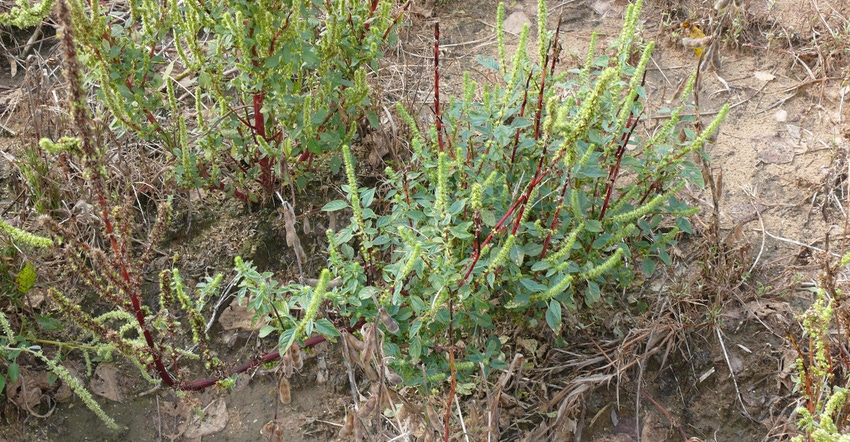
Don Robison hopes to make changes in the Indiana seed law soon. As it stands now, Palmer amaranth seed could be in your bag of crop seed, and no one is required to disclose that the species is hitchhiking its way to your fields.
Robison, Indiana's seed administrator, is charged with carrying out the state's seed law. He works for the Indiana seed commissioner, Robert Waltz, and heads up the state seed lab housed in the Office of the Indiana State Chemist and Seed Commissioner (OISC).
Here are five things farmers deserve to know about the seed law in Indiana. The current status of what is and isn’t a noxious weed tops the list.
1. Seed tags list the weeds that are on Indiana’s noxious weed list. There are two categories of noxious weeds, Robison says. "Prohibited" means not one seed of that weed is allowed. "Restricted" means not more than 0.25% of the seeds in the bag can be those seeds. Restricted noxious weed seeds in the sample need to be listed on the bag, along with the number of restricted noxious weed seeds per pound of seed.
2. Palmer amaranth weed seeds do not have to be listed on the tag. Why not? It’s simply because Palmer amaranth is currently not listed as a noxious weed in Indiana’s seed law, Robison says. Efforts to update the list of noxious weeds in the seed law are underway, but it’s a slow process that could take months or more. You also won’t find marestail, waterhemp or glyphosate-resistant giant ragweed on seed tags either — they also aren’t on the noxious weed list. The last change to the list was in 1983 when Canada thistle was added.
3. Rules for organic seed are the same as for other seed. The same rules apply for organic seed as for any other seed, including how weed seed is listed on the tag. The seed law doesn’t recognize organic seed in any different way from other seed.
4. OISC does not regulate pollinator (flower) seed. This seed is often sown on areas devoted to various USDA programs or in wildlife habitat areas. It’s buyer beware on these seeds, Robison says.
Some states have reported that Palmer amaranth entered the state through cover crop seeds. Robison says that isn’t the case in Indiana. However, Palmer amaranth could be entering the state through pollinator mixes, he observes.
5. OISC regulates bird feed through the commercial feed law. People often suspect that Canada thistle and other weeds are introduced through seed used as bird feed. This product doesn’t fall under the seed law rules, Robison says.
About the Author(s)
You May Also Like




